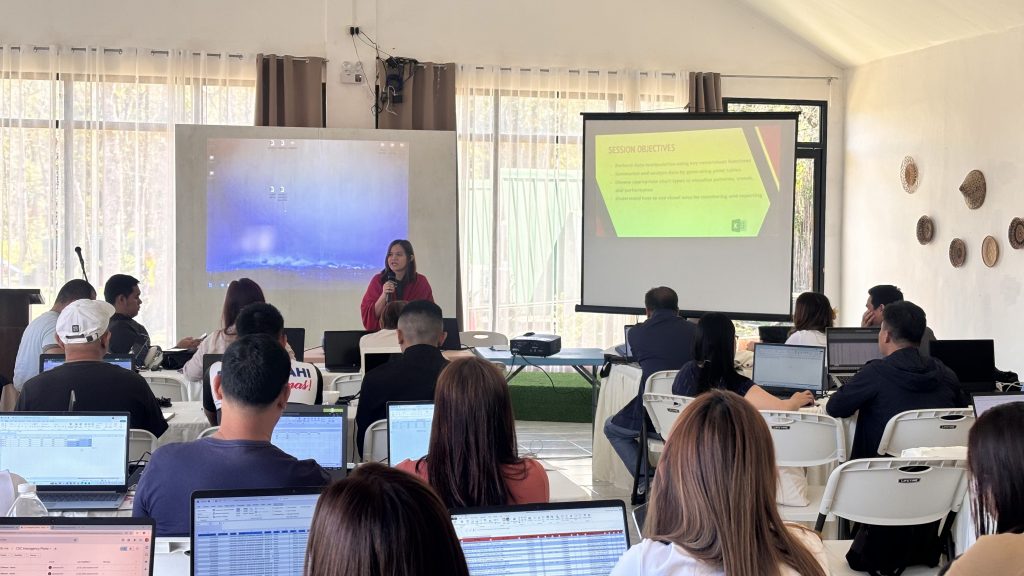
KALAHI-CIDSS staff and database managers from partner local government units (LGUs) participated in a three-day training course on data processing, visualization, and presentation held from July 29 to August 1, 2025, at Iluminada Garden Resort, Gingoog City.
The Kapit-Bisig Laban sa Kahirapan – Comprehensive and Integrated Delivery of Social Services (KALAHI-CIDSS) organized the training to strengthen the capacity of its field implementers in ensuring data quality and transforming raw figures into meaningful visuals and compelling narratives.
Resource persons from the Regional Program Management Office facilitated sessions on data cleaning, sorting, filtering, conditional formatting and visualization using Microsoft Excel. Participants also learned how to create dashboards using Looker Studio, culminating in a session on data presentation and storytelling.
Despite initial challenges, participants from the Kapangyarihan at Kaunlaran sa Barangay (KKB) modality expressed appreciation for the new knowledge gained and committed to continuously improving their skills.
“Thankful ko kay na-refresh akong knowledge. Akong natun-an sauna is outdated na compared sa mga gitudlo karon. Karon, na-enhance na,” said Genalyn Monares, Administrative Officer II.
(I’m grateful for the refresher. What I knew before was already outdated compared to what was taught now. Now, it’s been enhanced.)
KALAHI-CIDSS Deputy Regional Program Manager Engr. Abobacar Tocalo emphasized the critical role of data in the effective implementation of the program. He also acknowledged the significant contribution of the Monitoring and Evaluation Unit in developing a real-time dashboard that has helped management and staff monitor project progress, identify bottlenecks, and make informed decisions.
Tocalo encouraged participants to fully utilize the tools and techniques learned, underscoring that accurate and timely data is key to responsive and transparent program delivery.
The program aims to continuously train more staff and embed data processing, visualization, and presentation in its operations to strengthen its internal systems and foster greater stakeholder engagement through data-driven planning and reporting.
KALAHI-CIDSS works with poor communities in Northern Mindanao to deliver projects that improve access to basic services. It uses the community-driven development approach that gives communities control over resources and decision-making to implement projects that address their felt needs.


